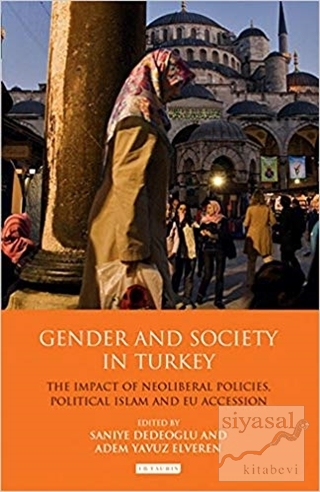
In the quest for EU membership, great strides have been made toward legal gender equality in Turkey since the 1990s. This exciting volume of articles by a range of leading scholars takes a gender-aware look at the underbelly of the recent political developments in Turkey. It is a must for those who wish to understand the gains and losses on the gender equality front, brought on by the inherently contradictory policies of the neoliberal Islamist AKP governments. In the best of feminist economic traditions, the contributors distinctly examine gender questions not only as they pertain to the public domain of jobs and public institutions but also to the realm of unpaid work in the home - that invisible, crucial labour that sustains the wellbeing of families.
Professor Giinseli Berik, Department of Economics and Gender Studies, University of Utah
'Central themes of the book include: welfare state structures in non-Western societies, EU gender equality policies, neoliberal welfare reforms, factors such as gender, class, religion affecting women's access to welfare benefits and services, and gender specific policy ramifications of the AKP government regime. Among the themes explored, the prevailing culture of Turkish society is interlaced throughout as a necessary backdrop. This book is also the first and most comprehensive approach to gendering the welfare state in Turkey and aims to open a path in deepening the debate on gender, social policy and the welfare state. This book therefore makes a significant contribution to a range of social science disciplines and serves as a very valuable addition to the literature on gender, social policy and the welfare state in Turkey.'
Professor Yildiz Ecevit, Department of Sociology and Director of Gender and Women's Studies, Middle East Technical University
In the quest for EU membership, great strides have been made toward legal gender equality in Turkey since the 1990s. This exciting volume of articles by a range of leading scholars takes a gender-aware look at the underbelly of the recent political developments in Turkey. It is a must for those who wish to understand the gains and losses on the gender equality front, brought on by the inherently contradictory policies of the neoliberal Islamist AKP governments. In the best of feminist economic traditions, the contributors distinctly examine gender questions not only as they pertain to the public domain of jobs and public institutions but also to the realm of unpaid work in the home - that invisible, crucial labour that sustains the wellbeing of families.
Professor Giinseli Berik, Department of Economics and Gender Studies, University of Utah
'Central themes of the book include: welfare state structures in non-Western societies, EU gender equality policies, neoliberal welfare reforms, factors such as gender, class, religion affecting women's access to welfare benefits and services, and gender specific policy ramifications of the AKP government regime. Among the themes explored, the prevailing culture of Turkish society is interlaced throughout as a necessary backdrop. This book is also the first and most comprehensive approach to gendering the welfare state in Turkey and aims to open a path in deepening the debate on gender, social policy and the welfare state. This book therefore makes a significant contribution to a range of social science disciplines and serves as a very valuable addition to the literature on gender, social policy and the welfare state in Turkey.'
Professor Yildiz Ecevit, Department of Sociology and Director of Gender and Women's Studies, Middle East Technical University






















